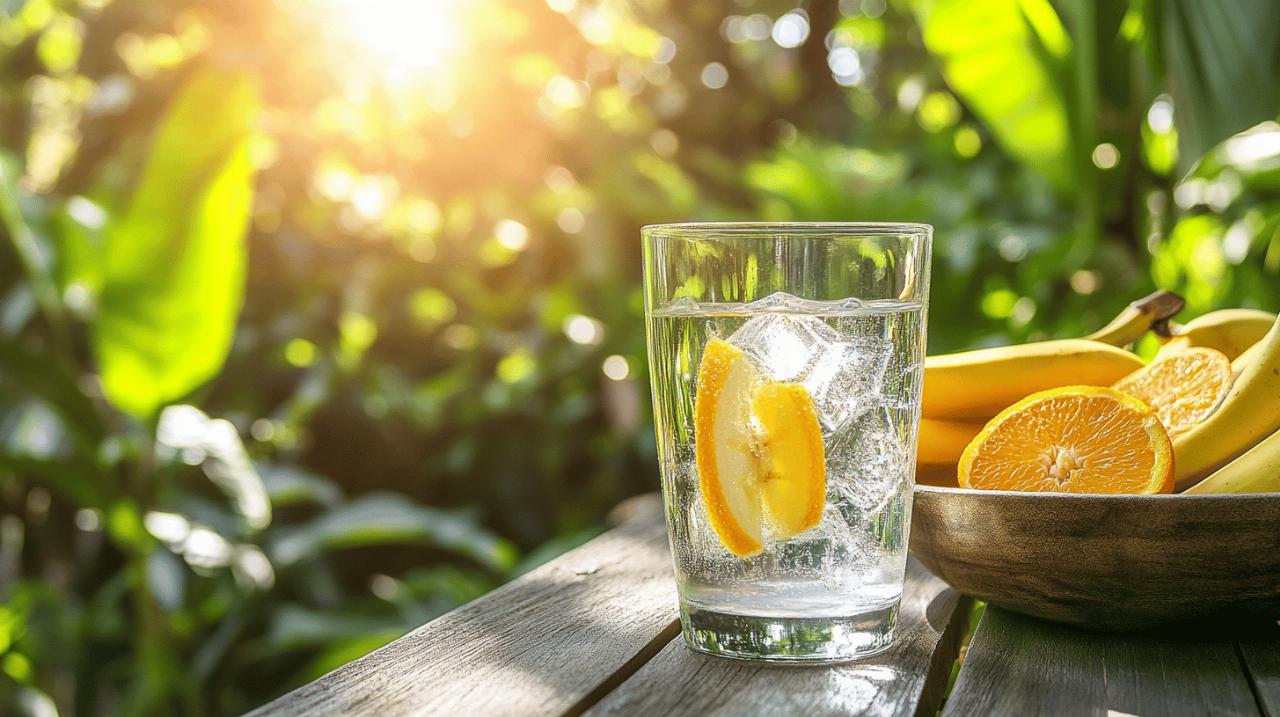Magnesium-Rich Water Benefits Explained: A Londoner’s Guide to Choosing the Proper Brew for Heart Health
As Londoners, we are increasingly mindful of what we put into our bodies, particularly when it comes to hydration. The bustling pace of city life often leaves us reaching for convenience, yet there is growing interest in ensuring that our daily water intake does more than simply quench thirst. Magnesium-rich water has emerged as a topic of genuine curiosity, not merely as a wellness trend but as a practical consideration for those seeking to support their overall health, particularly cardiovascular wellbeing. Understanding what this mineral offers and how to select the right water can make a tangible difference to your daily routine.
Understanding magnesium: why this mineral matters for your body
The Essential Role of Magnesium in Daily Bodily Functions
Magnesium is one of those unsung heroes in our diet, quietly working behind the scenes to keep numerous bodily processes running smoothly. This mineral is involved in over three hundred biochemical reactions, from the regulation of blood pressure to the synthesis of protein. It plays a crucial part in nerve transmission, ensuring that messages zip along your nervous system efficiently. Without adequate magnesium, muscle contractions would falter, energy production would stumble, and even your heartbeat might lose its steady rhythm. The mineral also supports the maintenance of healthy blood sugar levels, which is particularly important given the modern diet's tendency towards processed foods. For Londoners navigating the demands of work and family life, maintaining sufficient magnesium intake is not a luxury but a necessity for sustained vitality and resilience.
Common signs you might be running low on magnesium
Recognising the signs of magnesium deficiency can be tricky, as symptoms often overlap with the stresses of everyday life. You might find yourself feeling unusually fatigued despite a full night's rest, or perhaps you experience muscle cramps that strike without warning, particularly during the night. Some people notice a persistent sense of tension or even mild anxiety, which can be exacerbated by low magnesium levels. Headaches, particularly those related to tension, may also become more frequent. If you find your sleep quality has deteriorated or you struggle to feel truly rested, magnesium could be at the heart of the matter. It is worth noting that certain groups, including pregnant or breastfeeding women and those who engage in regular vigorous exercise, have higher requirements and may be more susceptible to deficiency. Paying attention to these subtle signals can prompt a review of your dietary habits and hydration choices.
Key health benefits of drinking magnesium-rich water
How magnesium supports your heart and cardiovascular system
Cardiovascular health is a primary concern for many, and magnesium plays a pivotal role in maintaining a healthy heart. The mineral helps regulate blood pressure by relaxing the walls of blood vessels, allowing blood to flow more freely and reducing strain on the heart. This relaxation effect also extends to preventing arterial stiffness, a condition that can contribute to hypertension and other cardiovascular complications. Furthermore, magnesium is involved in maintaining a regular heartbeat, helping to prevent arrhythmias that can arise from electrolyte imbalances. For those living in areas with hard water, such as London and much of the South East, the naturally higher mineral content can offer a small but valuable contribution to daily magnesium intake. Drinking water that is naturally rich in this mineral or enhanced through filtration can be a straightforward way to support your heart, particularly when combined with a balanced diet and regular physical activity.
Muscle function, energy levels, and bone strength: the complete picture
Beyond the heart, magnesium is indispensable for muscle function. It facilitates the contraction and relaxation of muscles, which is why a deficiency often manifests as cramps or spasms. Athletes and those who lead active lifestyles particularly benefit from adequate magnesium, as it aids in post-exercise recovery by helping to clear lactic acid from muscles. When it comes to energy, magnesium activates adenosine triphosphate, the molecule that stores and releases energy within cells. Without sufficient magnesium, you may experience energy crashes and a lack of mental clarity. Bone health is another area where magnesium shines, working in tandem with calcium to maintain bone density and reduce the risk of osteoporosis. It improves calcium absorption and helps regulate the hormones that influence bone formation. Drinking magnesium-rich water can therefore be seen as a multifaceted approach to wellness, addressing everything from daily energy levels to long-term skeletal health.
Decoding the Label: How to Select Quality Magnesium-Rich Water
What magnesium content to look for when shopping
 When you find yourself in the supermarket aisle, faced with rows of bottled water, knowing what to look for on the label can make all the difference. A water is generally considered magnesium-rich if it contains more than fifty milligrams per litre. Some brands, particularly those sourced from natural springs or thermal sources, may contain significantly higher levels, occasionally reaching up to five hundred milligrams per litre. However, for everyday consumption, a content of fifty to one hundred milligrams per litre is both beneficial and palatable. It is also worth examining the overall mineral composition, as a balance of calcium, potassium, and sodium can enhance the water's health benefits and taste. Natural spring water is often a reliable choice, as it typically contains a well-rounded profile of minerals. Sparkling waters can also be a good source, often falling within the twenty to one hundred milligrams per litre range. Reading labels carefully ensures you are making an informed choice that aligns with your health goals.
When you find yourself in the supermarket aisle, faced with rows of bottled water, knowing what to look for on the label can make all the difference. A water is generally considered magnesium-rich if it contains more than fifty milligrams per litre. Some brands, particularly those sourced from natural springs or thermal sources, may contain significantly higher levels, occasionally reaching up to five hundred milligrams per litre. However, for everyday consumption, a content of fifty to one hundred milligrams per litre is both beneficial and palatable. It is also worth examining the overall mineral composition, as a balance of calcium, potassium, and sodium can enhance the water's health benefits and taste. Natural spring water is often a reliable choice, as it typically contains a well-rounded profile of minerals. Sparkling waters can also be a good source, often falling within the twenty to one hundred milligrams per litre range. Reading labels carefully ensures you are making an informed choice that aligns with your health goals.
Comparing london tap water to bottled magnesium water options
Tap water in London is perfectly safe to drink and is subject to rigorous quality checks. However, the magnesium content can vary depending on your specific location within the city and the treatment processes used by your local supplier. Generally, areas with hard water, which includes much of London and the South East, tend to have higher mineral content, including magnesium. If you are curious about the exact levels in your tap water, it is straightforward to contact your local water supplier for detailed information. Bottled magnesium-rich water offers a more consistent and often higher concentration of the mineral, which can be particularly useful if you are looking to supplement your intake reliably. Some people prefer the taste of bottled water, especially if they find the mineral notes of certain brands more appealing than their tap water. On the other hand, using a magnesium-enhancing water filter at home can be a cost-effective and environmentally friendly alternative, allowing you to enjoy the benefits without the ongoing expense and plastic waste associated with bottled water. Weighing these options based on your budget, taste preferences, and environmental values will help you make the best choice for your household.
Creating a Balanced Approach to Your Magnesium Intake
Top food sources to complement your magnesium water
While magnesium-rich water can be a valuable addition to your diet, it should not be your sole source of this essential mineral. A varied diet rich in whole foods provides a broader spectrum of nutrients and ensures you meet your daily requirements. Leafy green vegetables, such as spinach and kale, are among the best sources, packed with magnesium and other vital nutrients. Nuts, particularly almonds and cashews, offer a convenient and satisfying snack that contributes significantly to your intake. Seeds, including pumpkin and sunflower seeds, are similarly beneficial and can be easily added to salads or porridge. Whole grains, such as brown rice and quinoa, provide not only magnesium but also fibre and sustained energy. Legumes, including black beans and chickpeas, are another excellent choice. Even dark chocolate, when consumed in moderation, can be a delightful way to boost your magnesium levels. By incorporating these foods into your daily meals, you create a solid nutritional foundation that complements the magnesium you receive from water.
Practical tips for meeting your daily magnesium requirements
Meeting your daily magnesium needs does not have to be complicated or expensive. The National Health Service recommends that men aim for around three hundred milligrams per day, while women should target two hundred and seventy milligrams. Pregnant and breastfeeding women, as well as athletes, may require closer to four hundred milligrams daily. Start by assessing your current diet and identifying areas where you can easily add magnesium-rich foods. Swapping refined grains for whole grains, snacking on nuts instead of crisps, and adding a handful of spinach to your evening meal are simple yet effective changes. If you opt for magnesium-rich water, whether bottled, filtered, or enhanced with mineral drops, make it a consistent part of your hydration routine. Some people find it helpful to set reminders to drink water throughout the day, ensuring they stay hydrated while also supporting their magnesium intake. If you suspect you have a deficiency or have specific health concerns, consulting with a healthcare professional can provide personalised guidance and, if necessary, recommendations for supplements. By taking a holistic approach that combines mindful eating, proper hydration, and awareness of your body's signals, you can maintain optimal magnesium levels and support your overall health and wellbeing.
